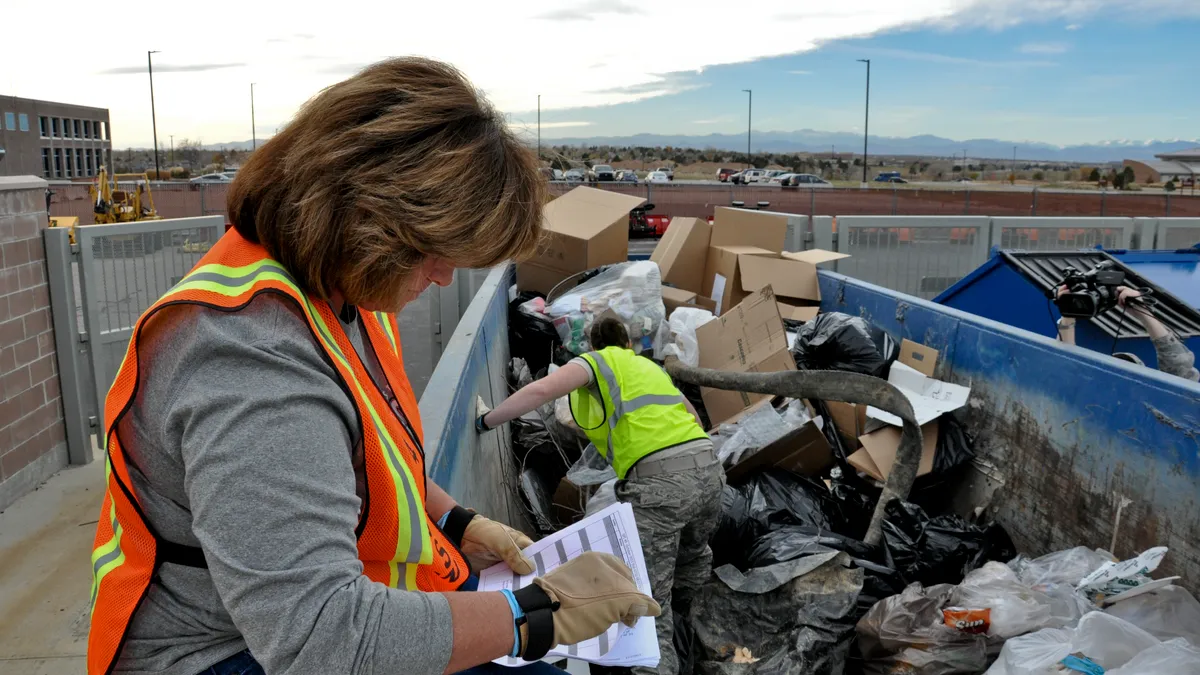Dive Brief:
- The Colorado Solid and Hazardous Waste Commission voted on Aug. 15 to adopt a resolution that sets statewide diversion rate goals for the first time. According to the Colorado Department of Public Health and Environment (CDPHE), the state's diversion rate has hovered around 19% for about a decade.
- The state will now strive to hit 28% by 2021, 35% by 2026 and 45% by 2036. The resolution also set different local targets, with lower rates for rural counties and higher targets for about a dozen more urban "Front Range" counties. Diversion is defined explicitly as "recycling, composting and anaerobic digestion."
- The conversation around statewide goals was accelerated by CDPHE's release of a waste and materials management plan last summer and has continued over multiple public stakeholder meetings. The plan found that an estimated $267 million worth of recyclable material is being sent to landfills each year, with the majority coming from Front Range communities.
Dive Insight:
While the commission made it clear that "there are no mandates, regulatory changes or penalties associated with the diversion goals" the move is seen as a way to set a "collective standard" for all to follow in Colorado. When excluding scrap recycling, the state's municipal solid waste diversion rate is actually closer to 12%. Its overall rate when excluding scrap and construction debris is closer to 18%. Multi-unit recycling is still rare, even in larger cities, and solid waste policy is seen as a lower priority for many local governments.
Based on public response — this resolution reportedly received more comments than usual for the commission — many Colorado residents are ready to step up and help drive diversion progress. This energy has been particularly noticeable in Denver, where a push is underway to expand curbside organics collection and The Recycling Partnership recently announced a new education program to increase steel can diversion. Colorado has also received industry attention for innovation at operations such as Alpine Waste & Recycling around robotics and glass, as well as the nonprofit Eco-Cycle's work on hard-to-recycle materials.
Even with the momentum that a new state policy may provide, the presence of below average landfill tip fees will still be a tough factor to overcome. This reality, along with a lack of recycling infrastructure in more rural areas and weak or nonexistent recycling regulations in many communities, may make it hard to achieve higher diversion rates without larger systemic changes. States such as California that have enacted more stringent programs are still not moving as fast as they'd hoped. Though as noted by supporters of Colorado's new plan, this is all the more reason to set targets they see as long overdue and get to work on raising the state's recycling profile.














